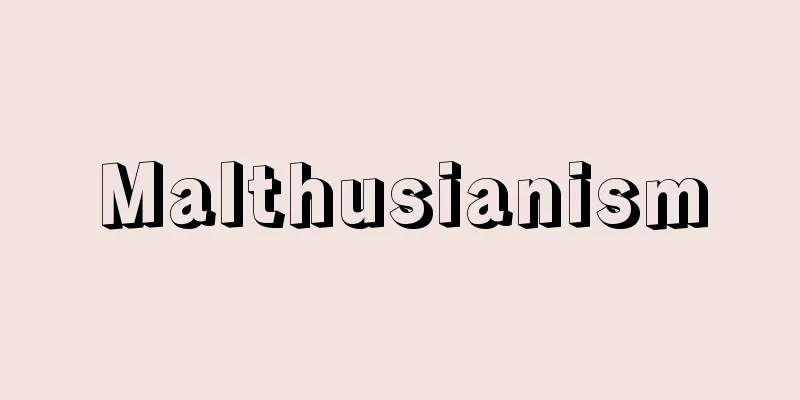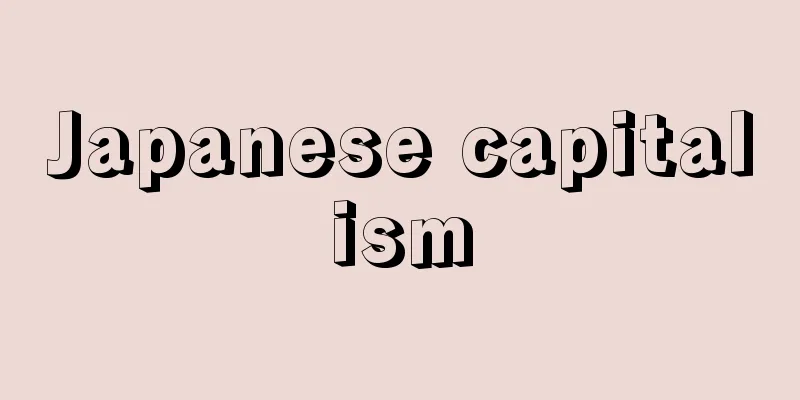Malthusianism

|
Originally, it refers to the theory on the relationship between population and food, which Malthus expounded in "An Essay on the Principle of Population" (1798). According to Malthus, population always tries to grow beyond the limit of food. However, various obstacles are used to restrain it. The first is food shortages caused by the difference between the growth rate of population and the growth rate of food (ultimate limitation), the second is factors that shorten human life span such as epidemics, war, extreme poverty, and hard work (positive limitation), and conscious actions such as refraining from marriage (preventive limitation). Since one of the second direct limitations operates to restrain population growth in every country, the ultimate limitation only operates during famine. Nevertheless, population still tries to grow beyond food, which prevents the improvement of the lives of the lower classes. The poverty of workers under capitalism is not due to social systems but is based on the law of population. Malthus made the above arguments to oppose the social reform theories of W. Godwin and others. From then on, the ideology that warned about the threat of overpopulation came to be called Malthusianism. Malthus was criticized early on by Marx and Engels, but the debate over Malthusianism has continued ever since. In Malthus and the Law of Population in the New Economic Theory of Nations (1900), F. Oppenheimer criticized Ernst Georg Ravenstein, Adolf Heinrich Gotthilf Wagner, Gustav von Rümelin and others as prophetic Malthusians who followed Malthus. After World War II, the pressure caused by the rapid population growth in so-called developing countries is considered to be the biggest Malthusian problem. [Yuichi Minagawa] "First Edition of The Principle of Population, by T. R. Malthus, translated by Takano Iwasaburo and Ouchi Hyoe (Iwanami Bunko)" ▽ "Marx, Engels, Criticism of Malthus, edited by R. L. Meek, translated by Oshima Kiyoshi and Tokinaga Yoshiyuki (1955, Hosei University Press)" ▽ "Malthus and the Modern Era, edited by Minami Ryozaburo and Tate Minoru (1966, Keiso Shobo)" [Reference] |Source: Shogakukan Encyclopedia Nipponica About Encyclopedia Nipponica Information | Legend |
|
本来はマルサスが『人口論』(1798)で説いた人口と食糧との関係に関する学説をいう。マルサスによれば、人口はいつも食糧の限度以上に増加しようとする。だがさまざまの障害があってそれは抑えられる。第一は人口の増加率と食糧の増加率との違いから生ずる食糧不足(終極的制限)、第二は流行病、戦争、極端な貧困、激しい労働のような人間の寿命を縮める諸要因(積極的制限)、および、結婚を控えるといった意識的行為(予防的制限)である。どの国でも第二の直接的制限のうちのいずれかが作用して人口増加を抑えるから、終極的制限が作用するのは飢饉(ききん)の際のみである。それでもなお、人口は食糧以上に増加しようとしており、これが下層諸階級の生活改善を妨げている。資本主義の下での労働者の貧困は、社会制度によるのではなく人口法則に基づいている。マルサスは、W・ゴドウィンらの社会改革論に反対するため、以上のような主張を展開した。以後、過剰人口の脅威を唱える思想をマルサス主義とよぶようになった。 マルサスに対する批判は、いち早くマルクス、エンゲルスによってなされたが、以後もマルサス主義論争は絶えることがない。F・オッペンハイマーは『マルサスおよび新国民経済学の人口法則』(1900)で、マルサスに続く予言的マルサス主義者としてラベンスタインErnst Georg Ravenstein、ワーグナーAdolf Heinrich Gotthilf Wagner、リューメリンGustav von Rümelinなどをあげ、批判した。第二次大戦後は、いわゆる発展途上国の人口激増に伴う重圧がマルサス的問題の最たるものと考えられている。 [皆川勇一] 『T・R・マルサス著、高野岩三郎・大内兵衛訳『初版 人口の原理』(岩波文庫)』▽『R・L・ミーク編、大島清・時永淑訳『マルクス、エンゲルス マルサス批判』(1955・法政大学出版局)』▽『南亮三郎・館稔編『マルサスと現代』(1966・勁草書房)』 [参照項目] |出典 小学館 日本大百科全書(ニッポニカ)日本大百科全書(ニッポニカ)について 情報 | 凡例 |
<<: Marsala (English spelling)
>>: Malthus - Thomas Robert Malthus
Recommend
Warning stick - Keisaku
〘Noun〙 ("Saku" means to whip)① (━suru) A...
Pygmy sperm whale
...A general term for mammals belonging to the ge...
Lucullus, Lucius Licinius
[Born] Around 117 B.C. [Died] 58/56 BC A Roman sol...
Phasmida
...They live on food trees. The order Cheleutopte...
Business Year - Business Year
The period in which business accounting is process...
"Matisse the Painter" - Gakamatis
... His life, which was shrouded in mystery even ...
Chondrus ocellatus Holmes
A marine red alga that is used as a source of glue...
first-order reaction
…When the course of a reaction is known, the reac...
Enpukuji Temple
…Many temples were built in and around the capita...
Kiyomoto Umekichi (2nd generation)
Born: Ansei 1 (1854) [Died] 1911 A shamisen player...
Chang Hoon - Chou Kun
A soldier of the Beiyang warlords in China. Born ...
Ruditapes variegata (English spelling) Ruditapes variegata
…[Hiroshi Fukuda]. … *Some of the terminology tha...
Mount Kariba
It is the main peak of the Kariba Mountains at th...
Beatrix
...William III had no male heir, so Princess Wilh...
Wood scissors - Wood scissors
...The following tools are essential for home gar...









